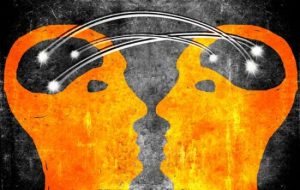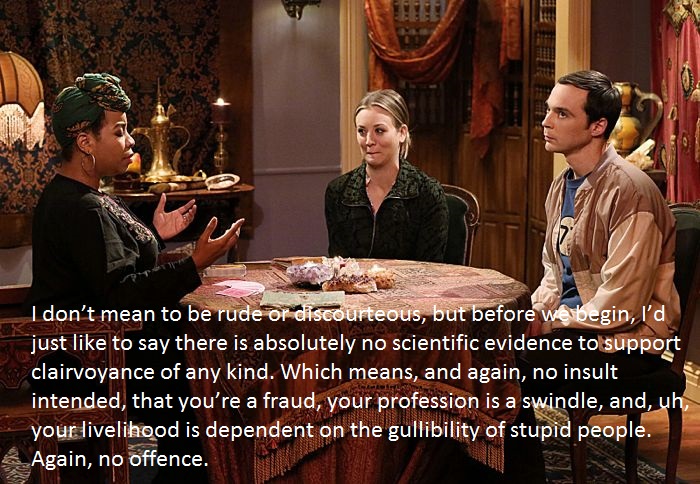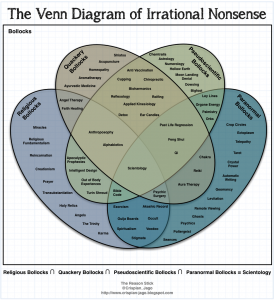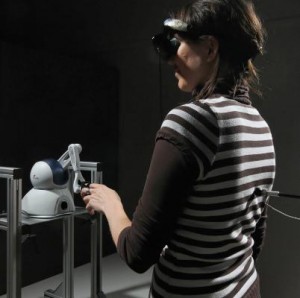Mar
19
2018
 In the 1970s and 80s belief in the paranormal was the most common target of skeptics. Topics like extrasensory perception (ESP), astrology, and faith healing were at the top of the list of skeptical concerns. In the last 30 years skepticism has evolved quite a bit, and while we never stopped being watchdogs on paranormal beliefs and other pseudosciences, they did mostly fade into the background. Other topics, such as science denial and the rise of fake news, took center stage.
In the 1970s and 80s belief in the paranormal was the most common target of skeptics. Topics like extrasensory perception (ESP), astrology, and faith healing were at the top of the list of skeptical concerns. In the last 30 years skepticism has evolved quite a bit, and while we never stopped being watchdogs on paranormal beliefs and other pseudosciences, they did mostly fade into the background. Other topics, such as science denial and the rise of fake news, took center stage.
But history has shown that there is often a cycle to such things. Interest in UFOs has waxed and waned over the years, for example, never going away completely, but fading and then rising again to prominence as a new generation discovers the topic.
Still, we do like to think we are making some progress through exposure and education. We have tried to interact frequently with the press so that at least the skeptical point of view will get better exposure when such topics are addressed. One solid victory was when the BBC announced they will no longer follow a pattern of false balance when dealing with science denial – putting a crank up against the consensus of scientific opinion as if they were equal.
A recent episode of CBS Sunday Morning about ESP, however, was worse than false balance, it was a throwback to the early days of credulous reporting about the paranormal with only token skepticism. Not that token skepticism was gone, but it has become more rare, especially from a major network or news outlet.
The piece, by Erin Moriarty, is a complete journalistic fail. It was the kind of piece we used to see thirty plus years ago before the skeptical movement had any traction. It is a perfect example of what we call token skepticism – a piece that is utterly gullible except for a very brief talking head skeptic who says something generic, like, “There is no scientific evidence to support this.” The token skepticism is immediately negated, however, by some response from the true-believer, a response the skeptic is never allowed to respond to in turn.
Continue Reading »
Aug
07
2017
I was interviewed a few months ago by a journalist, John Blake, doing a piece on exorcism. That article has now been published, and I’m afraid it’s disappointing in all the predictable ways.
The article is mostly about Dr. Richard Gallagher, a Yale-trained psychiatrist who believes in demonic possession. Gallagher is like catnip to a journalist – someone with credentials who has a fantastical story to tell. Is demonic possession real? This Yale psychiatrist says, “Yes.”
I have already deconstructed Gallagher’s claims, and the CNN article provides nothing new. Gallagher’s evidence that some people are actually possessed is predictably thin and proves only his lack of critical thinking. He cites the claim that possessed people display hidden knowledge, but his examples are far more easily explained as cold reading. He cites displays of extraordinary strength, which is not unusual for ordinary people under the influence of adrenaline.
He also cites hearsay – other people have told him they saw levitation, although he never witnessed it himself.
Continue Reading »
May
18
2017
 An interesting article in Slate by Daniel Engber reviews the story of Daryl Bem and his psi “Feeling the Future” research. If you are interested in this sort of thing the entire article is worth a read, but I want to highlight and expand upon the important bits.
An interesting article in Slate by Daniel Engber reviews the story of Daryl Bem and his psi “Feeling the Future” research. If you are interested in this sort of thing the entire article is worth a read, but I want to highlight and expand upon the important bits.
For review, in 2011 Bem published a series of 10 experiments in the Journal of Personality and Social Psychology (JPSP). I wrote about the research at the time, and wasn’t impressed. I wrote:
“In the final analysis, this new data from Bem is not convincing at all. It shows very small effects sizes, within the range of noise, and has not been replicated. Further, the statistical analysis used was biased in favor of finding significance, even for questionable data.”
Bem had taken standard social psychology experimental protocols, mostly dealing with priming, and did an interesting thing – he reversed the order of the experiment so that the priming came after the subjects were tested. For example, he would give subjects a memory test and then let some of them study the material. He claimed that the studying had an effect backward in time to allow subjects to perform slightly better.
For experienced skeptics, this was not much of a surprise. When dealing with claims that have a vanishingly small prior probability, you need extraordinary evidence to be taken seriously, and this wasn’t it. We were already very familiar with these kinds of results – if you squint just right there is a teeny tiny effect size. But we already knew that experiments are easy to fudge, even unwittingly, and it would therefore take a lot more to rewrite all the physics textbooks. (What is more likely, that the fundamental nature of reality is not what we thought, or Bem was a little sloppy in his research?) The key (as acknowledged by Bem himself) would be in replication. Continue Reading »
Mar
22
2016

I know, it’s redundant. All psychics are fake and a scam, but some are worse than others.
When most people think of psychics they conjure an image (see what I did there) of someone dressed in robes in a mystically decorated parlor who reads your palm or the tarot cards for $40. They are making a meager living giving people a bit of harmless entertainment. Some may actually think they have powers, some may know it’s all an act, but what’s the harm?
In truth, however, many psychics are predators who scam people out of hundreds, thousands, even tens of thousands of dollars. They prey on the vulnerable and the desperate and can ruin lives. This is not a benign industry.
A recent report from Toronto is just one of many – a steady stream with no expectation of ending. They report stories of people who have been victimized by psychics promising to turn around their fortunes, while parasitically bleeding them of as much money as possible. Continue Reading »
Jan
21
2016
Words are important. They definitely shape how we think about things, and are critical for affecting public opinion. I feel that as scientists and skeptics we are often on the losing side of the branding wars, probably because of our pesky attachment to technical accuracy, transparency, and honesty. Or maybe we just stink at marketing.
There is one turn of phrase, however, that I think perfectly captures a situation and is useful for communicating the skeptical position – “grief vampires.”
Grief vampires are self-proclaimed psychics or mediums who prey upon the loved ones of those who have recently died. They exploit the grieving for their own monetary gain.
Continue Reading »
Nov
06
2015
As a general rule of thumb, if a headline contains a question the answer is usually “no.” This headline is no exception.
Thanks to the low journalistic standards at the Daily Mail, an ESP proponent by the name of Diane Powell is getting another round of media attention for her claim that children with autism can have telepathic powers, which she feels is an evolutionary compensation for their otherwise limited ability to communicate.
The story revolved around a 5-year-old boy named Ramses Sanquino, whose mother believes is a savant as well as telepathic. I tend to be skeptical of specific savant claims, even though they are well documented in some cases. I don’t doubt the phenomenon, but I have also seen cases in which overzealous parents manufacture the perception of extraordinary abilities in their children.
I was even involved in a case in which a mother believed her young child, who was non-verbal, could read in two languages on a 10th grade level. She came by this determination through facilitated communication, which is not a legitimate technique. This was a clear case of projecting her hopes onto her mute and passive child.
Continue Reading »
Oct
01
2015
 If I had to choose the one thing that has most transformed human civilization it is science. Prior to this remarkable invention history was characterized by conflicting ideologies, philosophies, superstitions, and religions.
If I had to choose the one thing that has most transformed human civilization it is science. Prior to this remarkable invention history was characterized by conflicting ideologies, philosophies, superstitions, and religions.
Some practical knowledge managed to move forward, including various technologies and even enlightenment philosophy, but our attempts to understand and manipulate the world were burdened with magical thinking. Science set us on a new track, and in the last few centuries we have systematically replaced our old traditional thinking about the world with scientific thinking.
A thousand years ago European physicians attempted to understand and treat illness by manipulating the four humors while their eastern counterparts were faring no better with an astrology-based system of blood letting. If we wanted to anticipate future events, an astrologer would consult fanciful charts that have no actual influence on reality. If we wanted to make our lives better, ensure a good harvest, or survive a plague we would pray to imaginary powerful beings.
Continue Reading »
Sep
04
2015
 UK’s College of Policing has released their draft Authorised Professional Practice on missing persons investigations (there is a public comment period open until October 9). This might not seem that interesting, but it is getting some attention because of their recommendations regarding the use of psychics.
UK’s College of Policing has released their draft Authorised Professional Practice on missing persons investigations (there is a public comment period open until October 9). This might not seem that interesting, but it is getting some attention because of their recommendations regarding the use of psychics.
Here is the entire section under “Psychics:”
High-profile missing person investigations nearly always attract the interest of psychics and others, such as witches and clairvoyants, stating that they possess extrasensory perception. Any information received from psychics should be evaluated in the context of the case, and should never become a distraction to the overall investigation and search strategy unless it can be verified. These contacts usually come from well-intentioned people, but the motive of the individual should always be ascertained, especially where financial gain is included. The person’s methods should be asked for, including the circumstances in which they received the information and any accredited successes.
Let’s break this down a bit: The first half is reasonable. Tips from alleged psychics cannot be ignored because people may have obtained information in some other way – from their own investigation or because they have a connection to the case – and are just claiming the information is “psychic” to obscure how they came by the information or to opportunistically exploit the case for their own reputation. Saying that such information should be viewed “in context” is therefore reasonable.
Continue Reading »
Sep
03
2015
 One burning question that comes up in skeptical circles is whether or not people who believe in the paranormal, are highly religious, or are enamored of conspiracy theories think differently than skeptics. Obviously they have different beliefs, but the question is whether or not their brains function differently in some respects from people who are more rational and scientific.
One burning question that comes up in skeptical circles is whether or not people who believe in the paranormal, are highly religious, or are enamored of conspiracy theories think differently than skeptics. Obviously they have different beliefs, but the question is whether or not their brains function differently in some respects from people who are more rational and scientific.
It certainly seems as if this is the case, but being skeptics we understand the irony of relying on intuition to conclude that other people rely more on intuition. Fortunately we have some psychological research to shed light on this question, including a recent study I will discuss below.
First let me dispense with the obvious false dichotomy – we should not think of this question as if there are two distinct types of people. Psychological studies will often do this, but they are simply dividing a continuum down the middle, or are only considering people at either end of the spectrum.
Continue Reading »
Nov
10
2014
 I have investigated a few hauntings and ghostly phenomenon. In reality I was investigating the ghost-hunters who were investigating alleged hauntings. A few patterns quickly emerged. One is that actual sightings and reported events tended to cluster around a few individuals, or even one individual. Another is that such events never occurred when there was a skeptical investigator present.
I have investigated a few hauntings and ghostly phenomenon. In reality I was investigating the ghost-hunters who were investigating alleged hauntings. A few patterns quickly emerged. One is that actual sightings and reported events tended to cluster around a few individuals, or even one individual. Another is that such events never occurred when there was a skeptical investigator present.
Also very interesting, however, was that the real interesting stuff did not start happening until the early morning hours, such as 2 or 3 in the morning. Ghost hunters invent lore to explain this phenomenon (the haunting hours), but my hypothesis is that this is the perfect time for sleep deprivation to be taking its toll.
When the evidence for a phenomenon is reported subjective experience, we need to ask if those experiences are being generated by something happening outside the person, or just inside their brain. When the brain is sleep-deprived, it can become glitchy. We can fall asleep briefly without realizing it. We can start to slide into a dream state, and might even experience a fusion of the waking and dream state, even to the point of hallucinations.
One common report is the feeling of presence (FoP) – the sense that there is another entity in the room with us, although we can’t quite see it as it is lurking just at the edge of our vision. I have experienced this myself, during hypnagogic episodes when I am very sleep deprived.
Continue Reading »
 In the 1970s and 80s belief in the paranormal was the most common target of skeptics. Topics like extrasensory perception (ESP), astrology, and faith healing were at the top of the list of skeptical concerns. In the last 30 years skepticism has evolved quite a bit, and while we never stopped being watchdogs on paranormal beliefs and other pseudosciences, they did mostly fade into the background. Other topics, such as science denial and the rise of fake news, took center stage.
In the 1970s and 80s belief in the paranormal was the most common target of skeptics. Topics like extrasensory perception (ESP), astrology, and faith healing were at the top of the list of skeptical concerns. In the last 30 years skepticism has evolved quite a bit, and while we never stopped being watchdogs on paranormal beliefs and other pseudosciences, they did mostly fade into the background. Other topics, such as science denial and the rise of fake news, took center stage.











